- Home
- Peter Cawdron
Shadows
Shadows Read online
Shadows
Peter Cawdron
thinkingscifi.wordpress.com
Copyright © Peter Cawdron 2013
All rights reserved
The right of Peter Cawdron to be identified as the author of this work has been asserted by him in accordance with the Copyright, Designs and Patents Act 1988
First published as an eBook by Peter Cawdron using Smashwords
ISBN: 9781311458551
Silo Saga - WOOL Universe - Hugh Howey
All the characters in this book are fictitious, and any resemblance to actual persons living or dead is purely coincidental
Shadows is a tribute to Hugh Howey & the world of WOOL
Chapter 01: Dawn
Susan slowed as she approached the final curve on the grand staircase, catching her breath. She knew Charlie would be up there, sitting in the cafeteria in the pre-dawn hours, watching the wall-screen, waiting for sunrise.
With her hand running gently along the smooth, worn metal railing, she took the steps one at a time, pushing off with the accustomed gait of a porter. Her thighs had a natural rhythm honed from almost eighteen months shadowing a senior porter up and down thousands of stairs. Her calves were toned and tight. She’d learned how to take the steps with a gentle spring, giving her muscles a micro-pause, something the mechanics never seemed to master even though they had the longest haul up through almost a hundred and fifty levels within the underground silo.
Her eyes cast over her shoulder for a moment.
Beside her, the Great Fall opened out, a void plunging through the center of their subterranean world. For her, it was a waste of space, but the view was impressive. With the night lights inside the shaft still waiting for the automated switch to trigger the day, shadows fell into the darkness. She had to admit, the helical staircase was beautiful at this time of the morning, winding around the Great Fall, peeling off on the various landings, revealing the illusion of an ever tightening corkscrew as it faded beneath her. Some days, the seemingly never-ending turns felt oppressive, as though they were tightening around her, constricting her, but in the quiet of the early morning, the swirling staircase had a beauty she found intoxicating. With the sound of soft, rhythmic foot falls somewhere several levels below, the stairs seemed to be alive with a heartbeat of their own. Once the day unfolded, though, the cacophony of voices and boots, the smell of sweat and grease would once again transform the flower-like beauty of the stairs into the crunching, grinding gears of a giant machine.
She always enjoyed this final curve of the stairs leading to the cafeteria, the sheriff's office and the airlock. It sounded corny, and she didn't mean it literally, but there was something magical about seeing the grand staircase come to an end. She realized most people looked down, watching their weary boots trudge up one final flight, but her eyes cast up at the majestic dome spread out above the fall, a cap placed over the top of the great shaft. Like the spokes of a wheel, golden bars radiated out from a spike in the center of the dome, reaching down to the rim that surrounded the Great Fall. They were set on a dull blue background, something that had faded with time but was clearly a reminder of how the sky had once appeared.
Susan had never seen a blue sky, but like all the other kids growing up, she’d drawn pictures of green meadows and cotton candy clouds drifting through a warm, blue sky. She wasn’t sure if it was instinctive or whether her younger class simply copied the drawings of their elders, but greens and blues were the colors everyone loved when scratching away with recycled crayons. Those pictures were a distant memory now, but the dome was a gentle reminder that once the world had held life.
As far as she knew, the dome was the only thing within the silo that had been designed with aesthetics in mind. Everything else was functional, and brutally so. The concrete was austere, rough and coarse, lacking any finish. The stairs held worn tread marks, and meticulous spacing, so much so one could march unthinkingly on with barely a thought to the next step. Even their apartments were bare. Susan’s mother had done all she could to give their concrete shell a sense of home, but the smallest splash of color cost more chits than they could afford. The dome, though, gave Susan hope that there was something beyond the Great Fall into darkness below.
Susan loved the last step. There was something strangely satisfying about that last metal step passing underfoot. She felt as though she had conquered the mighty silo beneath.
She walked into the open court leading to the cafeteria. A couple of cooks were talking, working away in a well-lit section of the distant kitchen.
Charlie had his back to her. In the dim light, his silhouette was apparent against the vast wall-screen. There was a light on in the sheriff’s office. Next to that lay the imposing vault of the airlock, sealed by a three-foot thick metal door. The door was made from steel plates and must have weighed a ton, being meticulously set on massive steel hinges set into a bulky metal frame. Other sections of the silo might decay and fall into disrepair, but that mighty door was built to last a thousand years.
Susan tiptoed, trying to hide the squeak of her boots on the marble floor.
Charlie had stacked three pots upside down on the table in front of him, the largest at the bottom. He’d positioned a plastic breadboard on top, with two forks stuck at each end and a piece of glass taped between them. From the shape, it looked as though the glass had been taken from a pair of reading glasses. What on earth was he looking at? He squinted as he peered through the prongs, staring at the wall screen.
Susan slipped her hands over his eyes, saying, “Surprise.”
She could feel his cheeks rise as he smiled. She kissed him on the side of the neck.
“I thought I’d find you up here.”
Charlie turned to face her, saying, “Morning, Susan.”
Susan sat on the bench-seat next to him. The sheet metal was cold to touch.
“What’s this?” she asked.
“It’s not what you think.”
“At the moment,” she said, trying not to laugh. “I’m not sure what to think. Are you inventing some kind of exotic new cooking style?”
“It’s for observing the stars,” Charlie confessed.
“The stars! You know what Mac thinks of that. If he catches you up here looking at the stars he’ll get you posted to the Mids, or worse, Down Deep.”
Charlie slid to one side on the bench seat, gesturing for her to take a look.
“Don’t bump anything. It’s aligned perfectly.”
Charlie shifted over, making plenty of room for her. She pulled her dark brunette hair back, tucking it behind her ears as she closed one eye and peered through the prongs of the closest fork. The chopping board had been set on a slight angle, and she dared not touch it in case it slipped off its precarious perch.
“You are such a weirdo,” she said. “What am I looking at?”
For his part, Charlie laughed. He was looking sideways, across in front of her at the clock hanging above the cafeteria serving line.
“Look in the center, line up the two forks and look right through the middle. Make sure you’ve lined yourself up so you can see through the top of the prongs.”
“I still don’t know what I’m supposed to be looking for. There’s no stars.”
Charlie rested his hand gently on her shoulder, saying, “Keep looking. Be aware of your peripheral vision on either side. Tell me, what you can see?”
“Ah, the board and the forks are obscuring most of my view. I can’t see anything other than clouds.”
“Wait for it,” Charlie replied. “And ... Now!”
“Oh,” Susan said, her voice dropping. A star appeared between the prongs of the forks. In the low light, the star looked beautiful. There was a slight twinkle, something she’d never noticed before, making the sta
r appear as though it were a diamond. “How did you ...”
“Three minutes and fifty six seconds,” Charlie said, writing something on a scrap of paper beside him. He ignored her. She doubted it was intentional, he was clearly excited.
Susan sat back. Her hair had slipped forward, falling over the side of her face. She swept her hair back behind her ears again. This time she pulled a small band from her pocket and pulled her hair into a ponytail, listening as Charlie spoke.
“I’m not sure if the flicker is real or just an artifact of the screen's resolution, but the stars seem to sparkle.”
“Beautiful,” she said, taking another look. Susan felt clumsy, and had meant to utter a coherent sentence rather than just one word, but she really was astonished by the sight before her. She never thought she'd see anything on that accursed screen that she could call beautiful.
“They move, Sue. And it’s not random. It’s by the same amount every day. All the stars move by the same amount. It’s as though they’re all somehow connected, and yet I don't think they are. I suspect this is an illusion based on our limited perspective.”
Susan didn’t know what to make of his comment. She looked down at the metal table. Scratches and bumps marred its surface, revealing generations of use. Susan doubted anyone else had ever looked at the stars from this table in quite the same way before.
“I’ve got to get this back in the kitchen before the morning service starts or Chef James will get cranky.”
Charlie pulled the forks out of the board and started dismantling his tower of pots. Susan could see deliberate scratches etched into the table where he’d lined up his experiment from one day to the next.
“Does Chef James know about these?” she asked, her fingers running along the circular etching.
“Shhh. They’re needed to ensure precision.”
“If you get busted,” she said, unable to complete her sentence, not wanting to think about what could happen. “You know how dangerous it is to question. Questions lead to doubts, doubts lead to the airlock.”
“You worry too much,” he replied. “And you quote too much from the Order.”
Charlie tucked his charcoal pencil into his coveralls, carefully folding the scrap of paper as he slipped it into his shirt pocket. Susan helped him carry the pots back into the kitchen.
They both grabbed a cup of hot water and added some dried fruit: slices of apple, a few raisins and a shriveled apricot. It took a few minutes for the flavor to infuse with the water and form a natural tea, so they walked back to the table and sat down again, looking quietly at the floor-to-ceiling wall-screen.
Light broke over the hills. The dark, moody sky, with its patchy clouds gave way to pink and red hues. For a moment, the sky was almost beautiful. Within minutes, the sickly yellow tint of the day became apparent, reminding her of the toxic world in which they lived. The hills were lifeless. In the distance, the crumbling remains of several towers still stood, jagged and broken, empty silos that had once risen almost a thousand feet above the ground. Dust kicked along the edge of the hill. What had looked like rocks in the soft light resolved into the unmistakable form of bodies lying on the hillside.
Although she didn't know precisely where the silo lay, she understood it sat in a deep depression in the ground, almost as though it lay at the bottom of one of the salad bowls they shared on the cafeteria tables. The smooth, curved hillside had a sense of manufactured consistency. Neither she nor Charlie knew who built the silo, but it was clear they had shaped everything about their subterranean enclosure, including the view of the outside world. Those dead bodies represented the futility of change. No one had ever made it over the top of that steep incline even though it was probably only a distance of a hundred yards, and a climb of roughly fifty feet. Being a porter, Susan could have taken that hill without getting out of breath had it not been for the poisons and toxic chemicals that swirled through the air.
Susan sighed, not wanting to say what she was thinking.
“I’m not like him,” Charlie said, apparently reading her mind.
“I know,” she replied, taking the crook of his arm gently, wanting to communicate with more than words, hoping her soft touch would speak of her hope for a good life within the silo.
“I won’t end up like that.”
Susan swallowed. She wanted to say, I know, but the words wouldn’t form on her dry lips. She sipped at her tea.
“Why do you come here every morning?” she asked, wanting to change the subject.
“Can’t sleep, I guess,” Charlie replied. “Especially before a cleaning.”
Susan’s eyes dropped.
“It’s OK,” Charlie said, turning and looking at her. “I don’t think of going outside. I don’t want to climb that hill.”
“Then why look?” she asked.
“Because this is the only way we can learn. This is all we have, this one glimmer of a world beyond ours. I need to know. I need to learn. I cannot be content digging holes in the ground. I cannot spend my life looking down. I have to look up.”
“Dirt farming is honorable,” she said, instinctively knowing what he was referring to. “And, and ... you could do anything you want. You’re smart, you’re intelligent. Everyone knows that, there’s plenty of casters that would take you as a shadow. You could even get into IT if you wanted.”
Charlie shook his head, “I couldn't turn my back on my family. To most, death is tragic, but to me, its renewal, the chance to turn more soil, to see tomatoes grow, to ensure the next season’s cucumbers will be plump and juicy. No one wants to think about it, but we’ll all end up there one day. Soon or later everyone does. It’s only those that clean that have a chance to break the cycle.”
“Don’t say that,” she remonstrated, looking around. The main lights flickered. People were starting to mill around the lobby in front of the cafeteria, waiting for breakfast to be served. Susan sipped at her tea. She couldn’t eat, not when a young man in a prison cell barely thirty feet away was about to be sent to his death cleaning outside the silo.
“It’s why my father went out,” Charlie continued. “He couldn’t stand the thought of his son burying him with the worms. At least out there he has a memorial. In the Mids they say, life in the shadows only ever extends two casters deep, that no one will remember us beyond that, but he’ll be out there for hundreds of years. Out there, there’s no time, no rot, no decay, just the shriveled, dry, empty husk of what once had been alive. Out there, he has a helmet for a tombstone and a pair of boots to mark his grave.”
Susan was silent. She didn’t know what to say. She could see tears in his eyes.
“They say you see paradise in those final few minutes,” Charlie continued. “I don’t know how anyone knows that, but the old timers say that’s why they clean, that the cleaners go crazy outside the airlock. Maybe it’s something in the air supply, but they’re always happy to clean.”
Susan nodded. For Charlie, there were no taboos. After recycling bodies in the dirt farm, what was there that could shock him?
“You think he was happy?” she asked.
“Yes.”
“Is that why you stare at the screen?”
“Yes. For me, it would be sad not to look. To look away would be a wrong, a sign of cowardice.”
Charlie paused. She could see he was thinking about his words, picking them with the precision of a mender working with a needle and thread. He wiped away his tears.
“This is our only window into the world, Sue. There is so much we can learn if we take the time to look.”
Susan looked at the quiet screen. All she saw was the tragedy of death. The shattered frames of distant buildings filled her with despair. Dead bodies littered the hillside, leaving a dire warning not to mistake the cruelty of the world inside their concrete walls as any different from the poison outside: no one cleaned without being sent.
Susan didn't know who first came up with the idea of cleaning, but it carried far more weight than
the physical act. There was something primal and cathartic about the sins of many being borne by one. That the condemned would always clean struck her as counterintuitive, almost pathetic. Why would someone help a society that shunned them and sent them to their death? To her mind, those scraps of steel wool cleaned away far more than the grit clinging to the aging camera lens, they seemed to clean the hearts of those left behind.
“You see the way the dust sits low,” Charlie said, sweeping his hand across in front of her. She hadn’t noticed before, but he was right. The sickly yellow tinge was heaviest low down, forming a band across the lower portion of the screen, slowly lightening as it reached higher. Death’s grasp was strongest down low. Most of the bodies lay low on the hill, only a few had reached the upper slopes. No one had made it over the brow.
“Look at their suits,” Charlie said.
The bodies lower on the hill were partially exposed to the elements. Moonlight glistened off their silver oxygen cylinders. Sections of their suits had either collapsed or been torn by the wind, but those that fell higher seemed more intact.
“Some of the oldest cleaners are highest on the ridge,” Charlie added. “They should be the worst, the most worn. They get more of the sun, they’re more exposed to the winds, but they look almost fresh.”
“I don’t understand,” Susan confessed.
“It means, whatever it is that has ravaged our world, it’s heavier than air, sitting low in the valleys, hard up against our silo.”
Susan was silent, her mind awash with the realization that their haven was so precariously positioned, that some malevolent poison waited beyond the lock, wanting to get in and kill them all.
Charlie turned around, sitting up on the table with his back to the screen and his feet on the bench. He was bucking the system, but that’s what she liked about him. He wasn’t afraid to push back against silly edicts, she only hoped it didn’t escalate. She looked over at one of the waiters frowning in disapproval. Today, though, with a cleaning about to start, they had bigger challenges to deal with other than a mildly rebellious teenager.

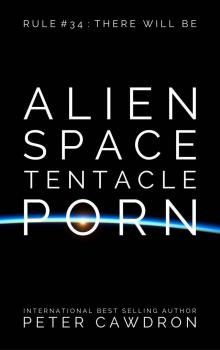 Alien Space Tentacle Porn
Alien Space Tentacle Porn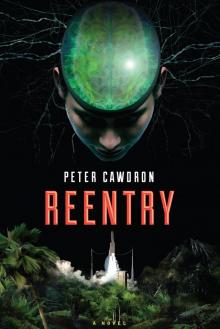 Reentry
Reentry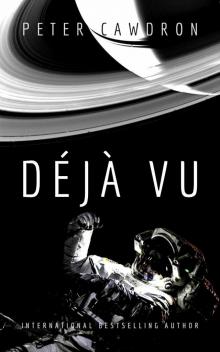 Déjà Vu (First Contact)
Déjà Vu (First Contact)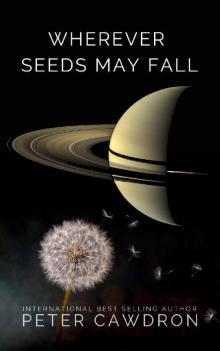 Wherever Seeds May Fall (First Contact)
Wherever Seeds May Fall (First Contact)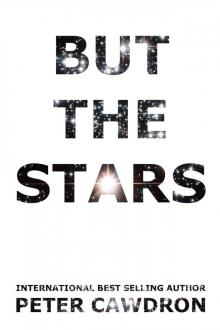 But The Stars
But The Stars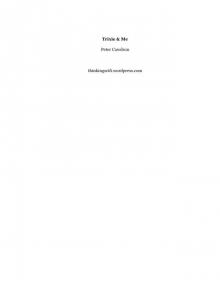 Trixie & Me
Trixie & Me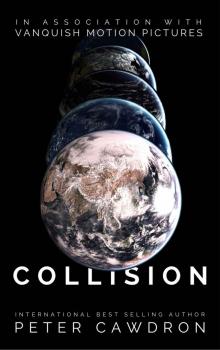 Collision
Collision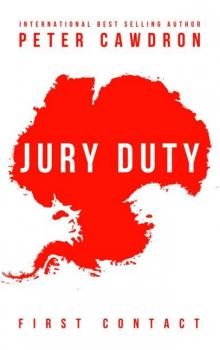 Jury Duty (First Contact)
Jury Duty (First Contact)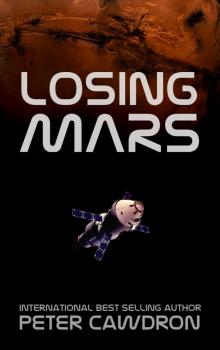 Losing Mars
Losing Mars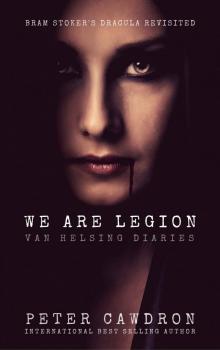 We Are Legion (van Helsing Diaries Book 2)
We Are Legion (van Helsing Diaries Book 2) Van Helsing's Diaries (Books 1-3): Nosferatu
Van Helsing's Diaries (Books 1-3): Nosferatu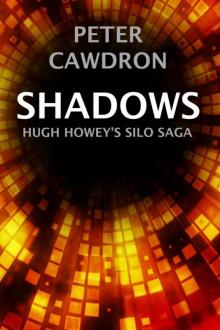 Shadows
Shadows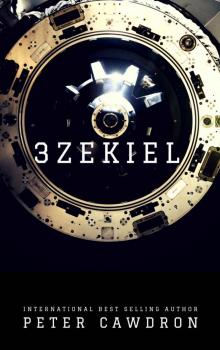 3zekiel (First Contact)
3zekiel (First Contact) Vampire (van Helsing Diaries Book 1)
Vampire (van Helsing Diaries Book 1) Xenophobia
Xenophobia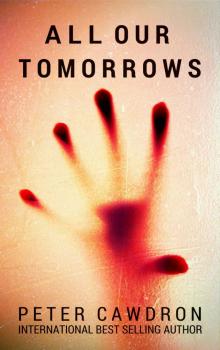 All Our Tomorrows
All Our Tomorrows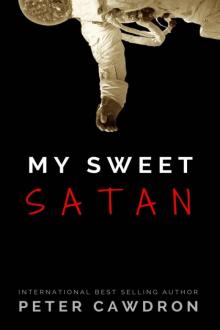 My Sweet Satan
My Sweet Satan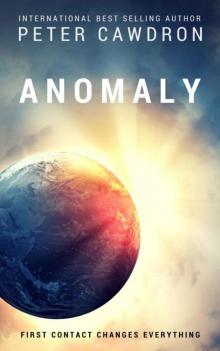 Anomaly
Anomaly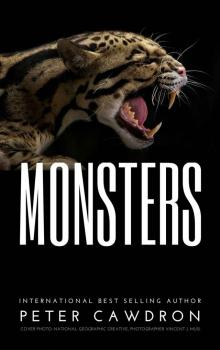 Monsters
Monsters